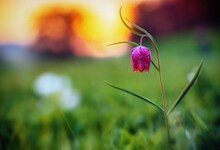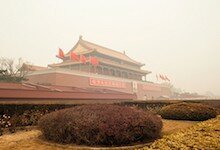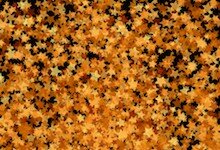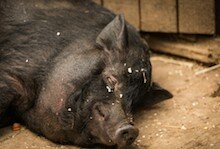Interview with Kim Cheng Boey
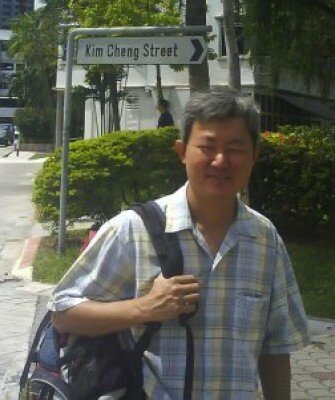
A decade after taking Australian citizenship, award-winning poet Kim Cheng Boey continues to write about Singapore as home. Michael Brennan, editor of Poetry International's Australian domain, asks Boey about his experiences and identity as an artist in this eloquent and enlightening interview.
Michael Brennan: When did you start writing and what motivated you?
Kim Cheng Boey: The itch started after reading “To Autumn.” I was 13 or 14, and hadn’t read much poetry then, but when I was given Keats’ ode, I was bewitched instantly by the music, the quiet power of the lines. I went on to read him seriously, the letters, the complete poems, and the Gittings biography, and that was it, no going back. Of course I was drawn by the Romantic image of the suffering poet, but Keats also converted with me his ideas of poetry as salvation, of poetry helping us through the ‘vale of tears’ and turning it into a ‘vale of soul-making.’
MB: Who are the writers that first inspired you to write and who are the writers you read now? What’s changed?
Kim Cheng Boey: I have started re-reading a lot. You come to the middle years and the tendency is to look back. Keats obviously, again and again, is indispensable. Hopkins, Owen, who all worshipped Keats, and Heaney, who has inherited the Keatsian sensuous thought, the way of feeling and thinking your way through the senses. In recent years I have been reading more prose – Carver, Updike, who are masters of the quotidian, Updike especially, who can turn the everyday into exquisite art, no matter how mundane the subject.
MB: How important is ‘everyday life’ to your work?
Kim Cheng Boey: More and more so. Maybe when I was younger writing was a sort of escape, rejecting the everyday in search of something extraordinary, travelling and seeking out those moments outside of quotidian time. But I’ve learned to pay attention to what is at hand, to the little moments, to inhabit the present more fully. I guess that’s why I love Carver and Updike, the way they can translate the everyday into numinous details and compelling narratives.
MB: What is the function or place of subjectivity in your poetry?
Kim Cheng Boey: I’ve always been a poet of experience, and writing is a way of making sense of what happened. The autobiographical impulse is there, but as with any form of self-writing, autobiographical poetry involves stepping back, splitting the self between subjective and objective positions, between lyric and narrative modes. You don’t think much about it until you see yourself as a character, and the poem as a story or artifact printed on the screen or page.
MB: Do you see your work in terms of literary traditions or broader cultural or political movements?
Kim Cheng Boey: I emigrated here from Singapore in 1997, and had published three books of poetry at that time. I had never seen myself as a Singapore poet before I left, because so much of my work up to that point was about escaping national boundaries and labels, but that position has since undergone revision and as my work has been studied and written about in Singapore, I have come to embrace the idea of myself as a Singapore poet who also happens to be Asian Australian. Labels are never adequate or satisfactory, and you feel differently at different times, about who you are and how you position yourself.
MB: What aspect of writing poetry and working as a poet is the most challenging?
Kim Cheng Boey: The days when you can’t write, the empty stretches in between when nothing happens, that is the hardest part. And there are many. When you know you are forcing a poem and going nowhere with it. But when the poem takes over, and you feel possessed, that something is riding and writing you, that is worth waiting for. That sometimes happens late in the draft.
MB: What reading, other than poetry, is important to your work as a poet and why?
Kim Cheng Boey: Lots of prose, good prose. I love the short story, and reading lots of Carver and Updike has helped in extending the lyric and expanding its narrative potential. Lots of good literary criticism too. The insights you get from a good reading are immensely helpful in developing your own poetics, your ideas and ideals of what poetry should be and do.
MB: What is ‘Australian poetry’? Do you see yourself as an ‘Australian’ poet?
Kim Cheng Boey: I am still discovering what Australian poetry is. I guess I have always been suspicious of nationalistic definitions. I am still new to the country, still learning the language, mapping the landscapes, and still inadequate expressing it, and certainly ill-qualified to comment on what Australian poetry is. But I can sense the changes creeping over it, the somewhat insular and Anglophone traditions being altered by more open and diverse voices from abroad, as testified by the newly published Contemporary Asian Australian Poets.
MB: Don Anderson once described Australian poetry as Australia’s only “blood sport”. More recently critics have seen Australian poetry in terms of a “new lyricism” (David McCooey) and “networked language” (Philip Mead). What is the current state of play in Australian poetry? How do you think Australian poetry and discussions about Australian poetry might best develop in the next ten years?
Kim Cheng Boey: There will always be literary factions, oppositions between what Swift calls “The Battle between the Ancient and the Moderns,” between tradition and innovation, and this is what energizes the literary life and landscape of a country. The camps of new lyricism and more language- and theory-oriented poetry you see now on the Australian stage, were already flourishing side by side in the US in the 50s and 60s, with the more autobiographical lyricism of James Wright and Robert Lowell, next to the Black Mountain poets and their open field approach, and O’Hara, Ashbery and the New York School. There was no hostility or even rivalry between them, because in a sense they inhabited different worlds. That should be the way, and though you see a bit of the poetry wars here, I should like to think that poets of all people should be open and tolerant of diversity.
MB: How is poetry relevant or valuable to contemporary society and culture in Australia or at an international level?
Kim Cheng Boey: We can either make grandiose claims for poetry, and cite Nietzsche’s “We have art in order not to perish of the truth,” or quote Auden’s ironical “Poetry makes nothing happen.” There may be poets who have made a difference on the public stage, Neruda, for example, who proclaims:
But the voice from the bottom of the well
Returns to the secret springs of the earth
And rises out of nowhere through the mouths of the people.
But for most poets it’s much more mundane. It’s about making your own life matter, about making sense of what happened, and paying attention to the everyday.


